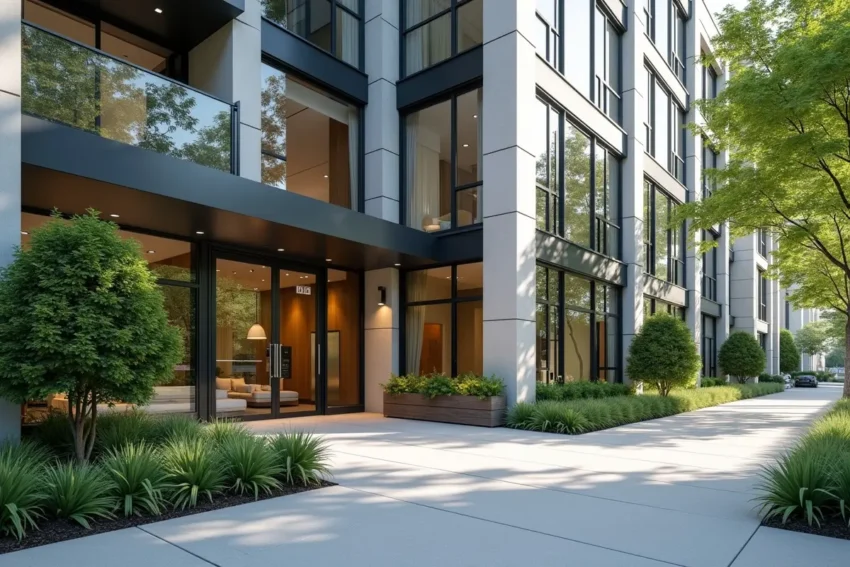How Long It Actually Takes to Find a Good Condo Rental

Finding the perfect condo rental sounds straightforward until someone actually starts looking. Most people assume they’ll spend a weekend browsing listings online, visit a few places, and sign a lease by the following week. Reality has other plans.
The rental search process stretches longer than expected for pretty much everyone. Between competitive markets, scheduling viewings, waiting for application approvals, and dealing with all the paperwork that comes with moving, even the most organized apartment hunters find themselves looking for weeks or months longer than they originally planned.
Contents
The Pre-Search Phase That Nobody Talks About
Before anyone even starts browsing rental listings, there’s homework to do. Credit reports need checking, employment letters require requesting, and bank statements need gathering. This prep work alone takes most people a week or two, especially if credit issues need addressing or employment documentation isn’t readily available.
Budget calculations take time too. Sure, everyone knows roughly what they can afford for rent, but factoring in utilities, parking fees, pet deposits, and moving costs often means adjusting expectations and starting the search over with different criteria.
Many renters discover that their initial wish list doesn’t match market realities. Someone might start looking for a two-bedroom condo with in-suite laundry and parking for under $2,500, only to find that combination doesn’t exist in their preferred area. Recalibrating expectations and priorities can add another week to the process.
The Actual Search Timeline
Online browsing feels productive but often creates false confidence about timeline expectations. Looking at dozens of listings online gives the impression that plenty of options exist, but scheduling actual viewings reveals how quickly good places get snatched up.
Most rental listings receive multiple inquiries within hours of posting. The condos that look amazing in photos and seem reasonably priced usually have something wrong—maybe the photos are old, the neighborhood isn’t great, or there are hidden issues that become obvious during viewing.
Scheduling viewings becomes a logistical nightmare pretty quickly. Property managers and landlords often have limited availability, especially on weekends when most renters prefer to look. Popular listings might offer group viewings or limited time slots that don’t work with everyone’s schedule.
Good condos in desirable areas typically stay on the market for just a few days. When exploring oakville condo rentals or similar suburban markets, timing becomes even more critical because inventory tends to be lower than in major urban centers.
The Competition Factor
Rental markets in most areas have become incredibly competitive. It’s common for good condos to receive multiple applications within 24 hours of the first viewing. This means renters need to be prepared to make decisions quickly and have all their documentation ready to submit immediately.
Application processes vary widely between landlords and property management companies. Some want extensive financial documentation, employment verification, and references, while others keep things simple. The problem is that renters don’t know which type they’re dealing with until they find a place they want.
Reference checks can slow things down significantly. Former landlords don’t always respond quickly to reference requests, and employment verification through HR departments can take several business days. These delays often mean losing out on rentals even when applications are otherwise strong.
Multiple backup applications become necessary because rejection rates are high in competitive markets. Most experienced renters apply for several places simultaneously, knowing that most applications won’t result in lease offers.
Seasonal Variations That Affect Timeline
Spring and summer rental markets move much faster than fall and winter markets. During peak season (roughly May through September), good condos might only be available for a day or two before getting rented. Off-season searches allow more time to consider options but have fewer listings available.
End-of-month availability creates timing challenges because most lease terms end on the last day of the month. This creates artificial deadlines where renters need to find places that become available exactly when their current leases expire.
Student housing markets in university areas follow academic calendars rather than typical seasonal patterns. These markets see massive inventory turnover in late summer and very little availability during the school year.
Holiday periods essentially shut down the rental market. Nothing much happens between mid-December and early January, and spring break periods see reduced activity in many markets.
The Paperwork and Approval Process
Even after finding the right place and submitting an application, the approval process adds time to the overall timeline. Credit checks, employment verification, and reference calls can take anywhere from a few days to two weeks, depending on how responsive everyone involved is.
Lease preparation and signing coordination requires scheduling that works for all parties involved. Property managers often have limited availability for lease signings, and lawyers (in areas where they’re required) add another scheduling complication.
Move-in inspections and key handovers need coordinating around the previous tenant’s move-out timeline. Sometimes there’s a gap between when the previous tenant leaves and when new tenants can move in, which affects moving truck reservations and time off work requests.
Realistic Timeline Expectations
First-time renters should plan on at least 4-6 weeks for the entire process, from starting their search to getting keys. This assumes they have their documentation ready and are flexible about timing and location.
Experienced renters in competitive markets often need 2-3 months to find something that meets their criteria, especially if they have specific requirements about location, amenities, or pet policies. Moving during peak season or with complicated timing needs can extend this further.
Renters with credit issues, unusual employment situations, or pets should add extra time to their timeline. These factors don’t make finding rentals impossible, but they do limit options and slow down the application process.
Emergency situations where people need housing immediately are the most challenging. Finding decent temporary housing while searching for permanent places often becomes necessary, which obviously extends the timeline and increases costs.
Making the Process More Efficient
Starting early is the most effective way to reduce stress and avoid settling for subpar rentals. Beginning the search 2-3 months before the desired move date provides flexibility to wait for better options and negotiate timing.
Having all documentation ready before starting to look at places makes a huge difference in competitive markets. Pre-approval letters, recent pay stubs, and reference contact information should be organized and easily accessible.
Working with rental agents or property management companies that handle multiple listings can streamline the search process, though this option isn’t available in all markets or price ranges.
The rental search timeline is almost always longer than expected, but understanding the process helps set realistic expectations and reduces the panic that comes with running out of time. Most people find decent places eventually—it just takes longer than anyone wants it to.



